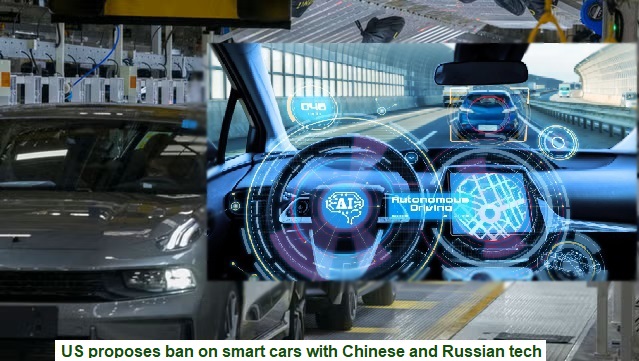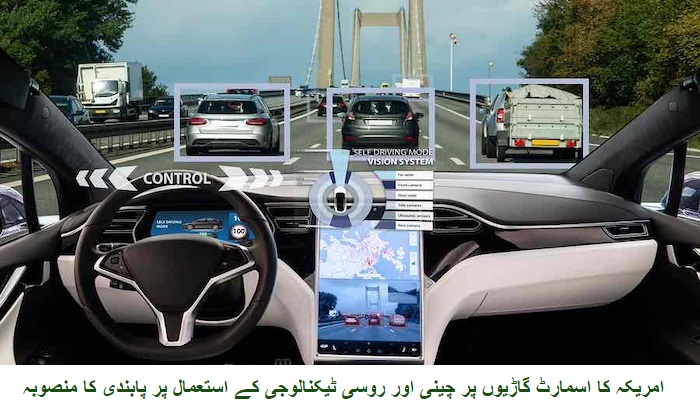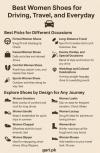US proposes ban on smart cars with Chinese and Russian tech

US proposes ban on smart cars with Chinese and Russian tech
The United States is moving to restrict the sale and import of smart vehicles that integrate certain technologies from China and Russia, citing national security threats. According to US officials, the Commerce Department will introduce a regulatory ban in response to concerns over potential risks posed by foreign software and hardware embedded in vehicles operating in the country. This situation raises several concerns:
- Why US have fears regarding smart vehicles?
- Can smart autos be controlled remotely?
- Can smart cars be exploded remotely by army or terrorists?
- Can smart autos be hacked?
- Can smart auto be used for monitoring?
- Can autos be attacked like current pager attack?
There can be lot of fears, specially when we see current pager attack, laptop explosions, walkie talkie expulsions.
امریکہ میں چینی اور روسی ٹیکنالوجی استعمال کرنے والی اسمارٹ گاڑیوں کی فروخت اور درآمد پر پابندی لگانے کا منصوبہ بنایا جا رہا ہے، جس کی وجہ سے قومی سلامتی کو لاحق خدشات سامنے آئے ہیں۔ امریکی حکام کے مطابق، کامرس ڈیپارٹمنٹ کی جانب سے ایک نیا ضابطہ متعارف کروایا جائے گا، جس کا مقصد ان گاڑیوں میں موجود غیر ملکی سافٹ ویئر اور ہارڈ ویئر کے ممکنہ خطرات کو کم کرنا ہے۔ اس صورت حال سے سوال اٹھتا ہے کہ
امریکہ کو سمارٹ گاڑیوں سے خوف کیوں ہے؟
کیا سمارٹ آٹوز کو دور سے کنٹرول کیا جا سکتا ہے؟
کیا سمارٹ کاروں کو فوج یا دہشت گرد دور سے دھماکے سے اڑا سکتے ہیں؟
کیا سمارٹ آٹوز کو ہیک کیا جا سکتا ہے؟
کیا سمارٹ آٹو کو نگرانی کے لیے استعمال کیا جا سکتا ہے؟
کیا آٹوز پر موجودہ پیجر حملے کی طرح حملہ کیا جا سکتا ہے؟
بہت سے خوف ہو سکتے ہیں، خاص طور پر جب ہم موجودہ پیجر حملے، لیپ ٹاپ دھماکے، وکی ٹاکی دھماکے دیکھتے ہیں۔

Investigating Security Threats in Vehicle Technology
A probe initiated by the US government earlier this year revealed significant security risks related to software and hardware originating from China and Russia. These include fears of remote hacking that could lead to sabotage and the unauthorized collection of sensitive personal data, as noted by Secretary of Commerce Gina Raimondo. "An adversary could theoretically disable or gain control over multiple vehicles within the US, creating widespread chaos on roads," Raimondo warned.
The ban will not affect cars currently in use with Chinese technology, but it will apply to vehicles starting with models released in 2027 for software and 2030 for hardware, the department announced.
امریکی حکومت کی جانب سے رواں سال کے آغاز میں کی گئی تحقیقات میں چینی اور روسی سافٹ ویئر اور ہارڈ ویئر سے جڑے متعدد سیکیورٹی خطرات کی نشاندہی کی گئی ہے۔ ان خطرات میں دور سے ہیکنگ کرکے گاڑیوں کو نقصان پہنچانے اور ڈرائیورز کا حساس ذاتی ڈیٹا چوری کرنے کا خدشہ شامل ہے، جیسا کہ سیکرٹری آف کامرس جینا ریمونڈو نے وضاحت کی۔ انہوں نے کہا، "غیر ملکی دشمن ایک ہی وقت میں امریکہ میں موجود تمام گاڑیوں کو کنٹرول کر کے حادثات یا سڑکوں کی بندش کا سبب بن سکتے ہیں۔"
یہ پابندی ان گاڑیوں پر لاگو نہیں ہو گی جو پہلے سے چینی ٹیکنالوجی استعمال کر رہی ہیں، تاہم 2027 کے ماڈلز میں سافٹ ویئر اور 2030 کے ماڈلز میں ہارڈ ویئر پر پابندی لگائی جائے گی، جیسا کہ ڈیپارٹمنٹ نے اعلان کیا ہے۔
Part of the US-China Tech Rivalry
This regulatory measure is part of the broader US effort to secure critical technologies and reduce dependence on foreign powers like China. Both nations are locked in a competition over cutting-edge technologies like artificial intelligence and semiconductors. China has aggressively expanded its influence in the smart electric vehicle market, particularly in Europe, raising red flags among US policymakers.
The Chinese government itself has taken steps to limit data collection from foreign manufacturers like Tesla, banning the brand from sensitive locations.
یہ پابندی ایک وسیع تر امریکی حکمت عملی کا حصہ ہے جس کا مقصد مستقبل کی اہم ٹیکنالوجیز کو محفوظ بنانا اور غیر ملکی طاقتوں، جیسے چین پر انحصار کم کرنا ہے۔ دونوں ممالک مصنوعی ذہانت اور سیمی کنڈکٹرز جیسی جدید ٹیکنالوجیز میں سبقت حاصل کرنے کی کوشش کر رہے ہیں۔ چین نے اسمارٹ گاڑیوں کے شعبے میں تیزی سے پیش رفت کی ہے، خاص طور پر یورپ میں، جس نے امریکی حکام کو تشویش میں مبتلا کر دیا ہے۔
چینی حکومت نے بھی غیر ملکی مینوفیکچررز، جیسے کہ ٹیسلا، کے ڈیٹا اکٹھا کرنے پر تشویش ظاہر کی ہے اور کچھ حساس مقامات پر ان گاڑیوں کی رسائی پر پابندی عائد کی ہے۔
Broader Ban Targets "Connected Vehicles"
The rule targets all types of connected vehicles, which refers to modern cars, buses, and trucks that use network connections for services such as satellite communication, roadside assistance, and more. The ban will specifically regulate any hardware and software that allows vehicles to connect to external systems using Bluetooth, WiFi, and cellular networks.
A 30-day public comment window will precede the final decision, expected to be issued before President Joe Biden's term concludes.
امریکی حکومت کی جانب سے رواں سال کے آغاز میں کی گئی تحقیقات میں چینی اور روسی سافٹ ویئر اور ہارڈ ویئر سے جڑے متعدد سیکیورٹی خطرات کی نشاندہی کی گئی ہے۔ ان خطرات میں دور سے ہیکنگ کرکے گاڑیوں کو نقصان پہنچانے اور ڈرائیورز کا حساس ذاتی ڈیٹا چوری کرنے کا خدشہ شامل ہے، جیسا کہ سیکرٹری آف کامرس جینا ریمونڈو نے وضاحت کی۔ انہوں نے کہا، "غیر ملکی دشمن ایک ہی وقت میں امریکہ میں موجود تمام گاڑیوں کو کنٹرول کر کے حادثات یا سڑکوں کی بندش کا سبب بن سکتے ہیں۔"
یہ پابندی ان گاڑیوں پر لاگو نہیں ہو گی جو پہلے سے چینی ٹیکنالوجی استعمال کر رہی ہیں، تاہم 2027 کے ماڈلز میں سافٹ ویئر اور 2030 کے ماڈلز میں ہارڈ ویئر پر پابندی لگائی جائے گی، جیسا کہ ڈیپارٹمنٹ نے اعلان کیا ہے۔
Concerns Over Data and Infrastructure Security
US authorities are increasingly worried about vulnerabilities in the country's electric vehicle charging infrastructure and other critical systems. They fear these could be exploited by foreign actors, including Russia and China. White House National Security Advisor Jake Sullivan noted the discovery of malware from the People's Republic of China (PRC) implanted in key US infrastructure systems, suggesting that similar methods could be used to compromise smart cars.
"If more vehicles containing insecure, foreign-made technology operate on US roads, the likelihood of serious disruption skyrockets," Sullivan stated.
امریکی حکام کو ملک کی الیکٹرک گاڑیوں کی چارجنگ انفراسٹرکچر اور دیگر اہم نظاموں میں غیر ملکی قوتوں کے استحصال کا خدشہ ہے، جس میں چین اور روس شامل ہیں۔ وائٹ ہاؤس کے قومی سلامتی کے مشیر جیک سلیوان نے کہا کہ امریکہ میں پہلے ہی چینی حکومت کی جانب سے انفراسٹرکچر میں مالویئر نصب کرنے کے شواہد موجود ہیں، جو مستقبل میں اسمارٹ گاڑیوں کے ذریعے مزید نقصان پہنچا سکتے ہیں۔
سلیوان نے کہا، "اگر ایسی مزید گاڑیاں امریکی سڑکوں پر چلتی ہیں جو غیر محفوظ اور غیر ملکی ساختہ ٹیکنالوجی سے لیس ہوں تو خلل اور نقصان کا خطرہ بہت بڑھ جائے گا۔"
China's Pushback on the Ban
In response to these developments, Chinese officials have denied the allegations and called on the US to avoid discriminatory policies. Lin Jian, a spokesperson for China’s Ministry of Foreign Affairs, criticized the United States for expanding its national security concerns to justify limiting Chinese business interests. Lin called for a fair and open market for Chinese products in the US.
چینی حکام نے ان الزامات کی تردید کرتے ہوئے امریکہ پر زور دیا ہے کہ وہ چینی کمپنیوں کے ساتھ غیر منصفانہ سلوک سے گریز کرے۔ چین کی وزارت خارجہ کے ترجمان لِن جیان نے کہا کہ امریکہ کو اپنی مارکیٹ کو چینی مصنوعات کے لیے کھلا، منصفانہ اور شفاف رکھنا چاہیے۔
Supporting US Workers Amid Tech Tensions
On the same day, the White House rolled out several programs to support American autoworkers, particularly in states like Michigan, which are critical to Biden’s reelection hopes. These include a $1 billion fund for small- and medium-sized auto suppliers and job training initiatives aimed at the electric cars industry.
Vice President Kamala Harris emphasized the importance of investing in American workers, particularly those involved in unionized industries. "The future of our economy depends on giving everyone an opportunity to succeed, and supporting key sectors like automotive manufacturing is vital," Harris said.
اسی دن، وائٹ ہاؤس نے امریکی آٹو ورکروں، خاص طور پر مشی گن میں، کو سہولت دینے کے لیے متعدد پروگراموں کا اعلان کیا ہے، جو صدر بائیڈن کی دوبارہ جیت کے لیے کلیدی ریاست ہے۔ ان پروگراموں میں چھوٹے اور درمیانے درجے کے آٹو سپلائرز کے لیے $1 بلین فنڈ اور الیکٹرک گاڑیوں کی صنعت میں ملازمتوں کی تربیت کے منصوبے شامل ہیں۔
نائب صدر کاملا ہیرس نے امریکی مزدوروں، خاص طور پر یونین سے وابستہ صنعتوں میں سرمایہ کاری کی اہمیت پر زور دیا۔ "ہمارے معاشی مستقبل کا انحصار ان لوگوں پر ہے جنہیں ترقی کا موقع ملے، اور کلیدی شعبوں جیسے آٹو مینوفیکچرنگ کی حمایت کرنا لازمی ہے،" ہیرس نے کہا۔
US Smart Vehicle Ban
National Security Concerns
Chinese Technology Ban
Russian Technology Ban
Smart Cars
Connected Vehicles
US Commerce Department
Vehicle Security Risks
Cybersecurity in Cars
Foreign Software Ban
2027 Model Year Restrictions
Vehicle Hardware Ban
Related Auto News Updates
Latest Discussions
Comments














Add a Comment "US proposes ban on smart cars with Chinese and Russian tech"